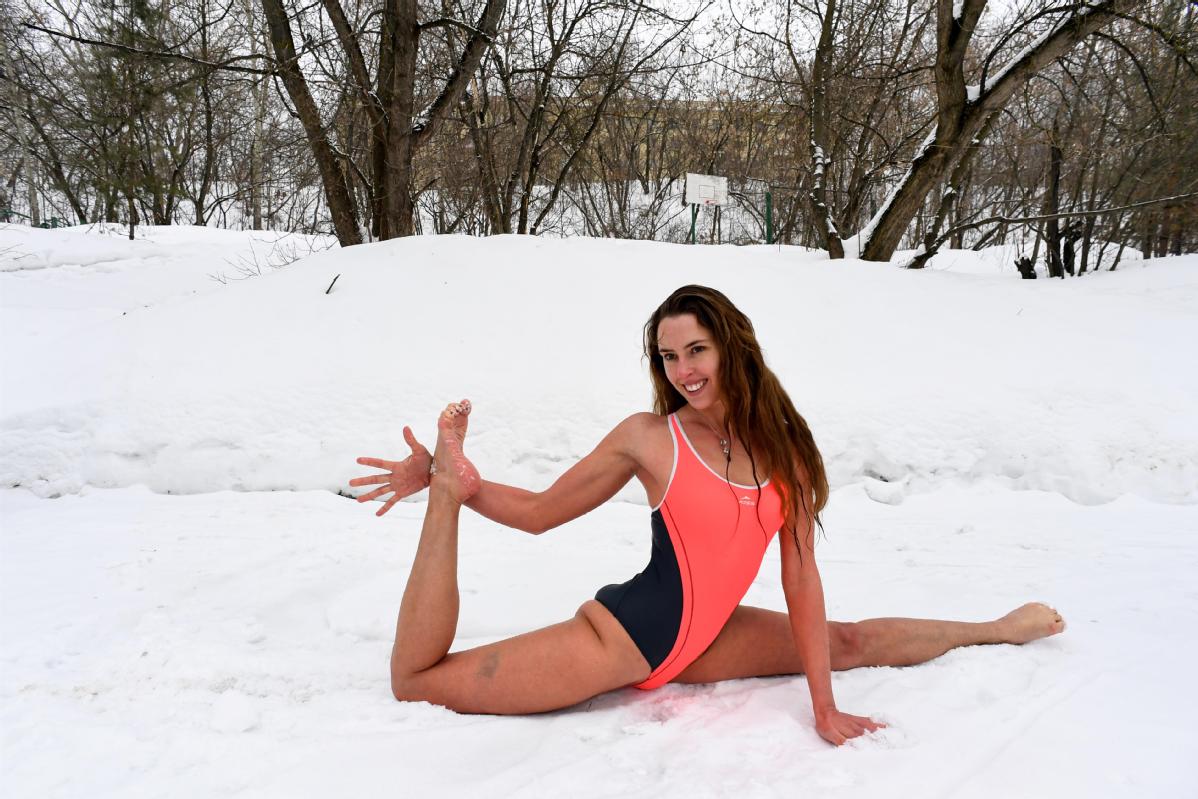Young Russians seek health, highs in ice swimming


MOSCOW - Diving into a long hole cut in the ice, Viktoria Tsuranova swims a few strokes and flashes a smile at the photographer capturing the moment for her Instagram account.
She is one of a new generation of Russian "Walruses" - hardy swimmers who plunge into frozen rivers and lakes all through the winter.
They swear it wards off not just colds but also cellulite, as well as giving them a rush of euphoria.
Ice swimming in Russia has long been associated with older, usually Speedo-clad men.
But Tsuranova and other members of Moscow's "Walruses of the Capital" club are giving it a fashionable new image. "A sporty way of life is right on trend now," says Nikolai, drinking rosehip tea with honey in a gray onesie.
He has just taken a dip in the L-shaped strip of water cut by the bank of the Moskva River, in the relatively balmy air temperature of-2 C.
"There's a kind of new wave of young people coming up now, following the generation that set the standard for walrus swimming - the older generation."
Tsuranova, a fitness blogger, later posts a video and photo of her swim on her Instagram, which has 103,000 followers.
Shivering a little in a fur coat after her swim, she says: "I'm just interested in the extreme, in testing myself. I'm scared every time."
She says she hasn't been ill once over the winter.
"It's a great way to prevent excess fat deposits and cellulite," Tsuranova adds.
Others are more equivocal on the health effects of ice swimming, defined as taking a dip in water temperatures of zero to four degrees C.
Russia's winter swimming federation, based in the Siberian city of Tyumen, lists joint health and good skin among the benefits.
But it also warns that those with weak hearts or breathing problems should not attempt it.
Way to toughen up
A separate study by Tyumen scientists in 2015 found that the cold temperature caused stress on the body for people who swam in ice over a period longer than 10 years.
Ice swimming is also practiced in Scandinavia and China, though it is particularly popular in Russia, where cold water is seen as a way to toughen people up.
Millions of Orthodox believers in the country plunge into icy pools every Epiphany as part of a religious tradition.
The facilities at the "Walruses of the Capital" club are minimal - a green-painted hut with tiny changing rooms heated by stoves.
Depending on their experience, ice swimmers tend to stay in the water for anything from one to around five minutes.
But the club is not just an amateur organization - it also trains swimmers to take part in international competitions held outdoors in winter.
The club's star swimmer Osman Delibash, 26, trains regularly and recently made a video showing her sitting for an hour in the frozen-over pond in her garden.
This set a record recognized by a Russian association for the longest stint in cold water by a woman.
She has also won a string of medals for swimming distances of up to a kilometer in subzero air temperatures.
Delibash, who also teaches soldiers serving in extra-cold environments and performs as a stunt woman, walks around in the snow barelegged in a bathrobe.
"Water is my element - specifically icy water," she says.
Agence France - Presse

































